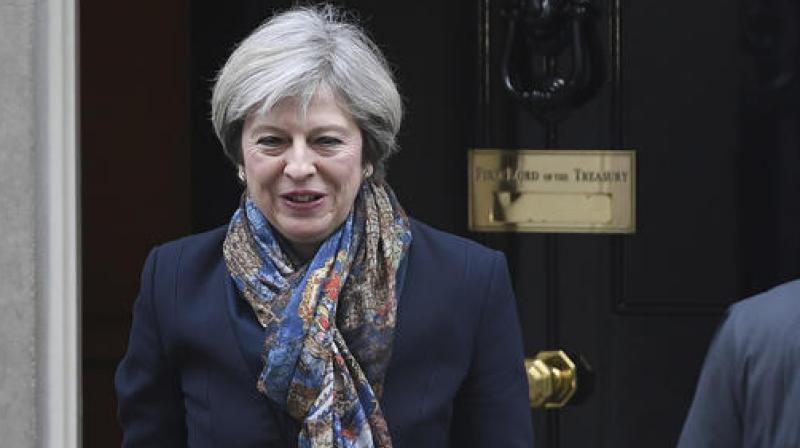British government publishes Brexit blueprint for parliament

London: The British government on Thursday presented its Brexit strategy to parliament, publishing 12 objectives that it believes will secure "a new, positive and constructive partnership" with the EU.
Brexit minister David Davis unveiled the "White Paper" to the House of Commons, a day after MPs there approved the first stage of a bill empowering Prime Minister Theresa May to start pulling Britain out of the European Union.
May insisted that the government did "not approach these negotiations expecting failure, but anticipating success" in the foreword to the paper, entitled "The United Kingdom's exit from and new partnership with the European Union".
She called on both sides of the debate to move on from the bitter referendum campaign and aftermath of the shock June 23 vote.
"After all the division and discord, the country is coming together," she said. "The referendum was divisive at times. And those divisions have taken time to heal.
"The victors have the responsibility to act magnanimously. The losers have the responsibility to respect the legitimacy of the outcome. And the country comes together," she said.
The document confirmed that Britain would be leaving the EU's single market in order to control immigration, but Davis said the government would seek a "bold and ambitious free trade agreement" and "a new positive and constructive partnership".
Davis stressed that it was the government's "firm view that it's in the UK's interest for the European Union to succeed".
Opposition Brexit minister Keir Starmer criticised the government for releasing the 77-page document minutes before the debate in parliament, and called on Davis to guarantee the rights of EU citizens in Britain.
Davis said Britain would not be "throwing any people out" as a result of Brexit, but that he needed similar assurances from EU leaders over the fate of British residents on the continent.
MPs on Wednesday approved a bill that would allow the government to trigger Article 50 of the EU's Lisbon Treaty and formally begin two years of exit negotiations, by a margin of 498 to 114.
It was the first Brexit-related vote in the House of Commons, coming after more than 17 hours of debate, with a second and final vote in the lower house set for next week before expected approval by the House of Lords next month.

